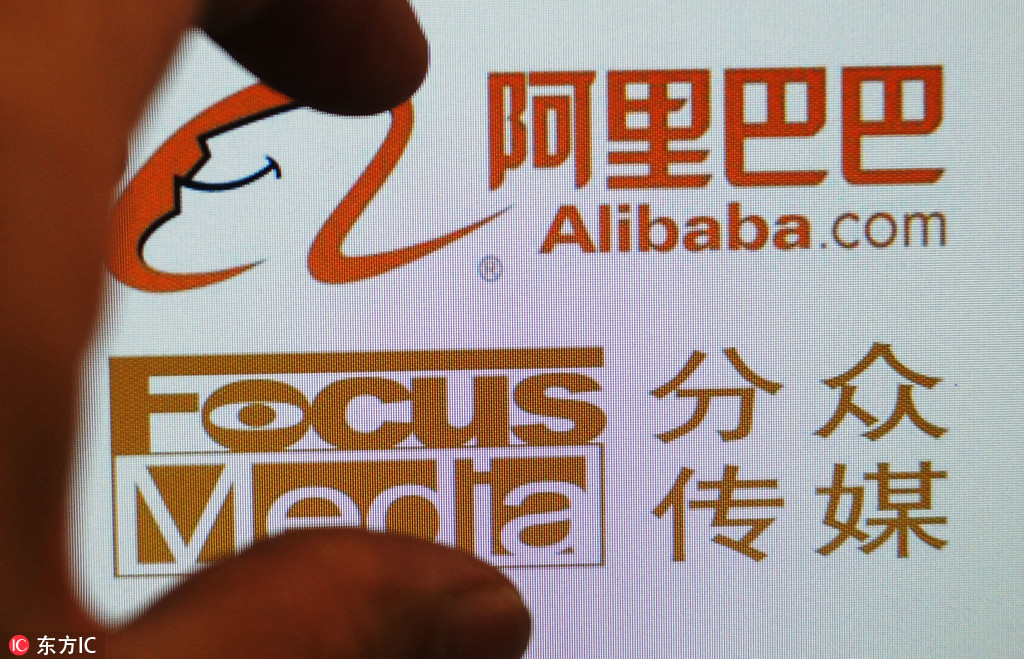Alibaba to buy stake in advertiser


E-commerce firm to expand in digital marketing with Focus Media alliance
Alibaba Group Holding Ltd is set to acquire a minority stake in China's largest out-of-home advertising network, as it looks to tighten its grip on digital marketing to better serve its omnichannel sales.
The e-commerce giant and its related parties plan to pay a combined 15 billion yuan ($2.22 billion) for a roughly 10.3 percent stake in Shanghai-based Focus Media Information Technology Co Ltd, which has digital ad boards covering streets, office buildings and subways across 300 Chinese cities.
In a filing to the New York Stock Exchange on Wednesday, Alibaba said it plans to acquire a further five percent of Focus Media's equity over the next 12 months.
Focus Media's share price soared by the daily 10 percent limit to 10.93 yuan in Shenzhen trading on Thursday.
The company, which claims to cover 200 million Chinese urban consumers, said the investment will forge a strategic partnership for the duo to explore digital marketing in the New Retail boom. Alibaba has wasted little time in placing its chips on New Retail, which refers to the merging of online and offline commerce through the use of technologies such as big data analysis and artificial intelligence.
The deal is set to complement and provide synergies with Alimama, Alibaba's in-house digital marketing platform, the company said. The e-commerce guru has long employed a system called Uni Marketing to help brands to identify, target, reach and retain customers across Alibaba's entire system, by analyzing customer data.
Chinese companies like Alibaba are proactively using their seamless digital marketing matrix to help brands navigate the complex marketing landscape, said Michael Dunn, chairman and CEO of Prophet, a global brand and marketing consultancy.
"They are in so many of these channels and such comprehensive fields that you start to see the business get better at how they integrate across all those levels," he said.
Dunn said digital marketing now pushes further into experience, and is technologically enabled through new experience channels, such as voice, and virtual and augmented reality, all of which tech companies have an edge in.
"Because a lot of these platforms are more coordinated, I think we are going to see faster acceleration around how to take advantage of that coordination, and hopefully it can create some of the best practices for global businesses," Dunn said.




































